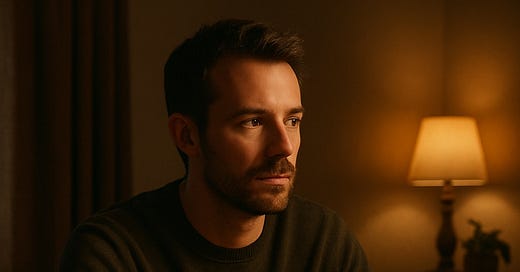You’re Drinking Coffee Too Early—Here’s Why That’s a Problem
Hey there,
Let’s talk about that sacred ritual—your first cup of coffee.
You know the one. The aroma that cuts through the morning fog. The warm mug against your palms. That comforting, almost ceremonial sip that says, “Okay, I’m alive now.”
But here’s the curveball:
Drinking coffee too soon after waking up could be sabotaging your energy.
Not boosting it. Not helping you focus. Sabotaging.
And no, this isn’t some anti-caffeine crusade. It’s about timing—and how a small shift can completely change the way you feel throughout the day.
The Numbers Don’t Lie: We’re Obsessed
65% of Americans drink coffee daily.
That’s more than the number who drink bottled water.
No judgment—we love caffeine. But… are we using it wisely?
Your Body Has a Natural Wake-Up System
Before caffeine even touches your bloodstream, your body’s already on the job.
Meet cortisol—your alertness hormone.
It spikes 30 to 45 minutes after you wake up, following a rhythm as old as human biology:
Morning peak → Afternoon dip → Evening wind-down.
This rhythm keeps you in sync with light, sleep, and energy. But when you drink coffee too early?
You override that rhythm—and your body starts relying on caffeine instead.
So What Actually Happens When You Sip Too Early?
1. You Build a Tolerance Faster
Caffeine and cortisol compete for the same brain receptors. When you flood your system with both at once, your body thinks, Cool, I guess I don’t need to make as much cortisol.
Result? You become dependent on coffee to feel normal.
2. You Crash in the Afternoon
Caffeine lifts you—then it drops you. Especially when taken too early. That “2 PM slump”? It’s often a rebound effect.
You feel wired… then fried.
3. Your Natural Alertness Declines Over Time
Studies show early caffeine initially raises cortisol—but long-term? It blunts your body’s natural production.
You trade short-term alertness for long-term sluggishness.
“Caffeine is most effective when your body is at its lowest energy—not when it’s already ramping up.” — Dr. Andrew Huberman, Stanford neuroscientist
So… Do You Have to Quit Coffee?
Nope. Not even close.
But you do need to use it more strategically.
3 Ways to Use Coffee Like a Pro
1. Wait 60–90 Minutes After Waking
Let your cortisol peak naturally. Then, when you drink coffee, it actually works.
Quick tip: Hydrate. Move your body. Get sunlight. Then caffeinate.
2. Time It Around Performance
Use caffeine like a tool—before demanding work, workouts, or deep-focus sessions.
Aim for 300–400mg/day (about 2–3 cups).
Avoid caffeine after 2 PM to protect your sleep.
3. Boost Energy Naturally (No Beans Required)
Morning sunlight (10–15 min): Resets your internal clock
Cold showers: Spike alertness via norepinephrine
Movement: Walks stimulate natural cortisol and blood flow
What Happens If You Wait?
The difference is almost immediate:
Energy that lasts longer
Sharper focus when you need it
Better sleep, deeper rest
One small shift. Big payoff.
Wait 60–90 minutes. Then sip.
Before You Brew Tomorrow’s Cup…
Ask yourself:
“Do I actually need this right now—or am I just running on habit?”
Let your body do its thing first.
Then, when the time is right, enjoy that first cup like it’s fuel—not a crutch.
Try it for a week. Just one.
You might be surprised at how much more energized—and less dependent—you feel.
Sources & References
National Coffee Association, U.S. Coffee Trends Report (2024)
Journal of Clinical Endocrinology & Metabolism (2022)
Huberman Lab Podcast (2023)
Nature Neuroscience (2021)
Sleep Medicine Reviews (2020)
Enjoying this kind of science-backed insight?
Subscribe for weekly tips on energy, focus, and peak performance.





